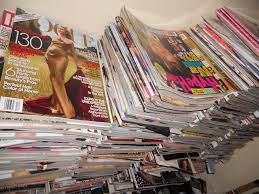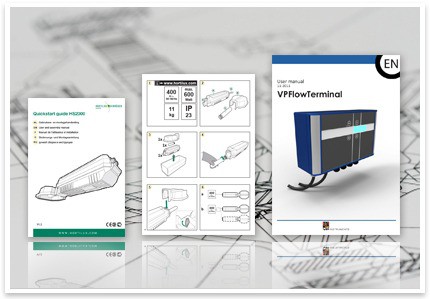
Kick-start your January decluttering by clearing out these things around the house
A new year inspires us to work on organizational home projects, but sometimes it’s hard to know where to begin. Warm up by doing something that’s satisfying and easy: purging things you don’t need or want. Pick a few things from this list to get rid of — it won’t take a lot of time or effort, it will clear some space, it will give you a sense of accomplishment, and it will help you get some good new habits going for the new year.

1. Extra Coffee Mugs
Chances are, if any of us spread out all of our coffee mugs, they wouldn’t look as attractive and cohesive as this display. And that’s just fine, but most of us are wasting valuable cabinet space on mugs in sizes we never use or with tacky motifs we don’t want to see first thing in the morning. Assess how many mugs you really need and put the excess into the donation bin.

2. Kitchen Sponge
For those who are vigilant about making sure they don’t have a sponge with any sort of mildew or nasty germs on it, please ignore this one. For the rest of you, toss that sucker right now.
Instead of filling landfills with these things, this year consider alternatives like reusable dishrags you can wash regularly or eco-friendly sponges made of biodegradable cellulose. If you come up with a good use for repurposing your old sponges, you’re doing better than this Houzz contributor.

3. Unwanted Books
Book lovers are tough to rip books away from, but chances are, there are some collecting dust on your shelves that could be bringing joy to others. Ask yourself these questions when purging your book collection:
- Will I read or reference it again?
- Does it have sentimental meaning that makes it worth keeping?
- Do I want it here for my guests to enjoy?
- Do I know someone who would enjoy this book?
Act accordingly based on your answers, such as creating a guest book pile or shelf or giving a friend that book you know he or she will love. If you are getting rid of books for children or young adults, see if your local Boys & Girls Clubs chapter would like them. Donate other books you’re done with to your local public library or neighborhood Little Free Library.

4. Old Magazines
If you didn’t read a magazine in 2019, you’re not going to read it in 2020. Don’t feel guilty that you might have missed out on a recipe or that you’ll fail at dinner conversation because you didn’t read every story in The New Yorker.
Magazines can be recycled wherever you recycle newspapers. If you’d rather they be enjoyed by someone else first, check with the proprietor of your local Little Free Library to see whether or not magazines are hot items there, and donate them if so. Or check with the art teachers at local schools to see if they want the glossy color magazines for collage projects.

5. Equipment Manuals
Manuals for items from the range to the DVD player often wind up being the “junk” in the “junk drawer.” And they may still be sealed in plastic packets full of registration cards you never sent and a lot of nonsense paperwork. Chances are, almost any equipment manual you are clinging to is available online, and if you’re nervous about its not being available digitally, just check before giving that paper manual the heave-ho.
In most municipalities, you can recycle paper manuals with newspapers. If there are plastic bags involved, recycle them at the grocery store or with your local recycling company if allowed.

6. Your Toothbrush
Much like sponges, toothbrushes are things a lot of us don’t think about throwing out when they seem to work just fine. But if the bristles are bent or broken, the American Dental Association recommends tossing the brush. (This is usually around the three-to-four-month mark.) Or, if you have a hard toothbrush, switch to one with soft bristles, which aren’t so hard on your teeth and gums.
When shopping for new brushes, research eco-friendly options, such as those made with recycled plastic or bamboo handles, or those with replaceable heads. The ADA also recommends storing your toothbrush in a place where it can dry out between uses and where the bristles are not touching another toothbrush’s bristles.

7. Expired Food
Go through the pantry and fridge and make two piles: one for expired items and one for items you don’t think you use but are still good, to donate. For items in the expired pile, recycle any cardboard boxes, plastic containers and metal cans.
By: Becky Harris
Published: 1/7/2020
By: Houzz.com

